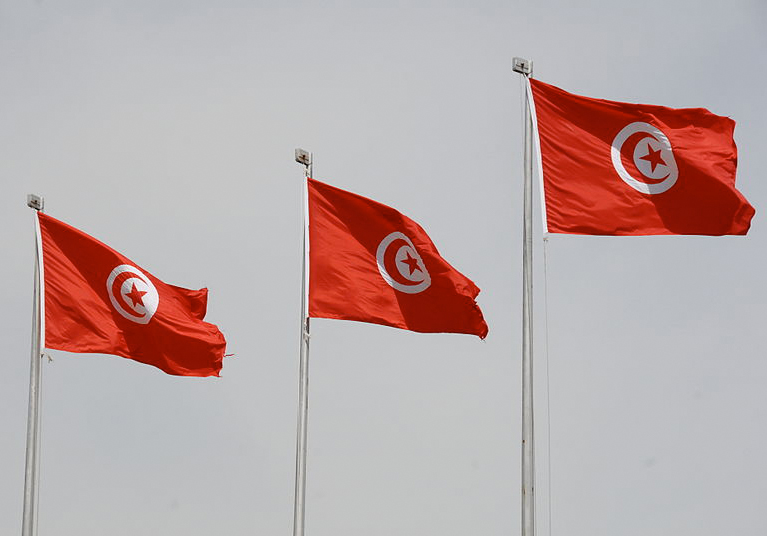
Mar 12, 2018 | News
As they begin the appointment process, the Tunisian authorities must ensure that selection of members of the Constitutional Court are made in compliance with international standards on the independence of the judiciary, the ICJ said today.
This must happen through an open and transparent process and based on prescribed, objective criteria of merit, integrity, and equality before the law, the ICJ adds.
The 2014 Constitution and the Organic Law no. 50 of 2015 on the establishment of the Constitutional Court provide that three bodies are responsible for appointing the 12 members of the Constitutional Court.
These are the Assembly of People’s Representatives (ARP), the High Judicial Council, and the President of the Republic, which each body appointing four out of the 12 members successively.
The Constitution and the Organic Law also provide that members must have 20 years of professional experience and nine of them should have advanced legal expertise.
Over the past three weeks, the ARP has been reviewing the candidates for the Constitutional Court and the election of first four members is due to take place in a general plenary on Tuesday, 13 March 2018.
“Ensuring that the selection and appointment of all members of the Constitutional Court is made on the basis of their legal qualifications, competence and personal integrity is absolutely necessary to the strengthening of rule of law and the protection of human rights in Tunisia” said Said Benarbia, Director of the ICJ Middle East and North Africa Programme.
“In electing the four members, the ARP should ensure that these criteria are fully met, and that the process safeguards against appointments for improper motives, including political considerations and arrangements between political groups,” he added.
The Tunisian authorities should also ensure that the composition of the Constitutional Court reflects the diversity of the community it serves, including by ensuring the equal representation of women in the Court, as well as a significant representation of minority groups.
In a previous memorandum, the ICJ has also urged the authorities to ensure that the selection process guarantees the independence of the institution and of the individual judges in compliance with international standards.
Contact
Said Benarbia, Director of the ICJ Middle East and North Africa Programme, tel: +41798783546, email: said.benarbia(a)icj.org
Background
Article 11 and 12 of Law no. 50 of 2015 provides that the election of candidates by the Parliament and the High Judicial Council shall take place through a secret ballot with the vote of a majority of two-thirds of their members. Article 13 provides that the President of the Republic appoints the last four members of the Constitutional Court.
The 2014 Constitution requires the establishment of the Constitutional Court within a year after the legislative elections. Four years later, and despite the entry into force of Law no. 50 in 2015, the Constitutional Court has not yet been established.
Tunisia-PR-Constitutional-Court-2018-ARA (Full Text in Arabic, PDF)
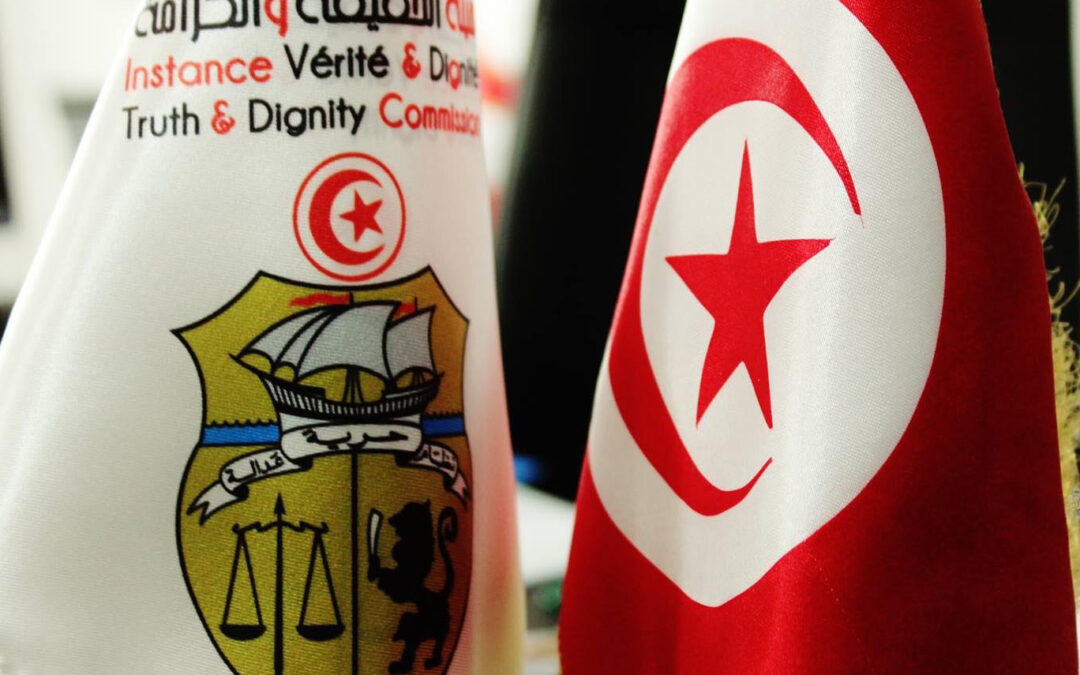
Mar 6, 2018 | News
The ICJ today welcomed the first referral of allegations of gross human rights violations to the recently constituted Specialized Criminal Chambers (SCC) at the Tribunal of First Instance of Gabés.
On 2 March 2018, the Truth and Dignity Commission (“Instance Vérité et Dignité”, IVD) transferred a case concerning 14 suspects and the crime of enforced disappearance to the SCC, established to bring justice and accountability for the legacy of serious human violations allegedly committed in Tunisia from 1 July 1955 to 31 December 2013.
“The IVD’s decision is an important first step in the process of ensuring accountability and dismantling the structural impunity that has prevailed over cases of gross violations of human rights in Tunisia,” said Said Benarbia, Director of the ICJ Middle East and North Africa Programme.
“We call on the responsible Tunisian authorities to fully support this process and remove the obstacles that continue to impede the IVD’s work, including by ensuring its full, rapid and unimpeded access to archives and to information related to the conduct of police and security forces under the former regime,” he added.
The ICJ also reiterated its previous call on the Tunisian authorities to remove the legal and practical obstacles that may hinder the SCC’s capacity to deliver justice effectively.
In two memos addressing the jurisdiction and the procedures to be applied by the SCC, the ICJ identified such obstacles and formulated recommendations for amendments and reform.
“The Government must reform the legal framework and procedures to be applied by the SCC so that they can effectively exercise their jurisdiction, establish the truth about past violations, hold those responsible to account, and deliver meaningful justice and reparation for victims,” Benarbia said.
Contact
Said Benarbia, Director of the ICJ Middle East and North Africa Programme, t: +41 798783546, e: said.benarbia(a)icj.org
Background
The SCC were formally established by Decree No. 2014-2887 of 8 August 2014 and have been set up within the Tribunals of First Instance of thirteen Courts of Appeal.
Under article 8 of the 2013 Transitional Justice Law, the SCC have jurisdiction over cases related to gross violations of human rights, as defined in international treaties applicable to Tunisia and in the provisions of the 2013 Law, involving “murder, rape and other forms of sexual violence, torture, enforced disappearances, and death penalty without fair trial guarantees”.
The 2013 Law attributes a leading role to the IVD with respect to how cases are brought before the SCC. According to article 42 of the 2013 Law, the IVD refers to the Office of the Public Prosecutor (OPP) “cases where gross human rights violations are proven”. As of 15 June 2016, the deadline for victims to submit files, the IVD has received over 60000 cases.
Tunisia-SSC disappearances-News-2018-ARA (full story in Arabic, PDF)
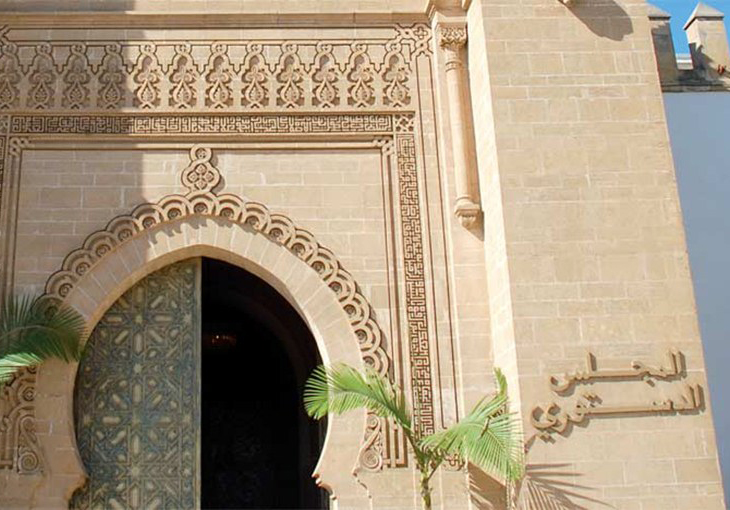
Feb 20, 2018 | News
In a memo published today, the ICJ called on the Moroccan authorities to refrain from signing into Law Draft Organic Law No. 86.15 on access to the Constitutional Court with a view to amending it and ensuring its full compliance with international standards.
On 8 August 2017, the House of Representatives approved the Draft Law.
The Second Chamber of the Parliament, the House of Counselors, approved the Draft Law on 16 January 2018.
Before its promulgation, the Draft Law is due to be reviewed by the Constitutional Court to assess its compliance with the Constitution.
“The Draft Law is a missed opportunity to facilitate individuals’ access to the Constitutional Court and to remedy Morocco’s history of inadequate procedures of constitutional review,” said Said Benarbia, ICJ MENA Director.
“By providing for a two-layered admissibility system that includes vague and subjective criteria, and by omitting to extend free and competent legal assistance to those unable to pay when challenging the constitutionality of laws, the Draft Law puts undue burden on the litigants and curtails their access to the Court,” he added.
Under the Draft Law, a request to challenge the constitutionality of a law can only be introduced in the context of a litigation.
Lower courts are to refer the request to the Cassation Court after reviewing it and confirming that the formal and legal requirements set out in the Draft Law are met.
The Cassation Court shall then assess the challenge and refer it to the Constitutional Court if deemed “serious.”
The ICJ is concerned that this proposed procedure increases the likelihood that some laws and provisions may never be subjected to constitutional review, and that litigants may be blocked in their efforts to ensure the review of the constitutionality of the laws.
Moroccan authorities should provide for lower courts to immediately refer constitutionality challenges to the Constitutional Court, as well for other avenues of access, including for individuals and NGOs to be enabled to join proceedings as interested parties or to submit information as amicus curiae or through expert opinions, the ICJ says.
Under international law, anyone who alleges they have been the victim of a human rights violation has the right to access to an effective remedy, including a judicial remedy.
In Morocco, ensuring that alleged victims have access to constitutional review is of key importance to fulfilling this right within the national legal system.
Morocco-Access Const Ct-News-web story-2018-ARA (full story in Arabic, PDF)
Morocco-Access Const Ct-Advocacy-Position paper-2018-ENG (Memo in English, PDF)
Morocco-Access Const Ct-Advocacy-Position paper-2018-ARA (Memo in Arabic, PDF)
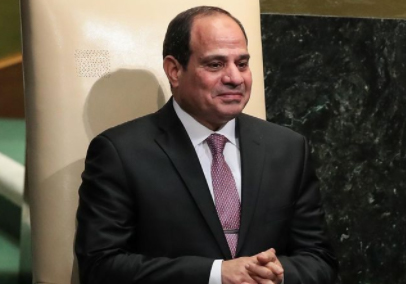
Feb 14, 2018 | Communiqués de presse, Nouvelles
Le gouvernement égyptien a piétiné les conditions minimales pour que des élections libres et équitables aient lieu les 26-28 mars 2018 lors du vote pour la présidence, ont annoncé aujourd’hui la CIJ et treize organisations internationales et régionales de défense des droits humains.
Le gouvernement du président Abdel Fattah al-Sissi ne cesse d’étouffer les libertés fondamentales. Il a également arrêté des candidats potentiels et effectué des rafles parmi leurs partisans.
« Les alliés de l’Egypte devraient aujourd’hui dénoncer publiquement la mascarade que sont ces élections, plutôt que de continuer à offrir un soutien inconditionnel à un gouvernement présidant à la pire crise des droits humains que le pays ait connue depuis des décennies », ont déclaré les organisations.
Les États-Unis, l’Union européenne et les États européens, qui fournissent une aide financière substantielle au gouvernement égyptien, devraient systématiquement intégrer les droits humains dans leurs relations avec l’Égypte.
Ces pays devraient mettre fin à toute assistance en matière de sécurité pouvant être utilisée dans le cadre de la répression interne, et axer leurs efforts sur l’amélioration concrète des droits fondamentaux.
La répression en amont de l’élection présidentielle égyptienne est une escalade substantielle dans un environnement politique qui nie le droit des individus à la participation politique et à la liberté d’expression, d’association, et de rassemblement pacifique.
Les autorités égyptiennes devraient immédiatement libérer toutes les personnes arrêtées pour avoir participé à des campagnes politiques ou avoir déclaré leur intention de se présenter aux élections présidentielles, appellent les organisations.
Les autorités ont successivement éliminé les principaux concurrents ayant annoncé leur intention de se présenter à la présidentielle. Ils ont ainsi arrêté deux candidats potentiels, le général à la retraite Sami Anan et le colonel Ahmed Konsowa.
Un troisième candidat potentiel, Ahmed Shafiq, ancien Premier ministre et commandant de l’armée de l’air, aurait été placé en résidence surveillée non déclarée dans un hôtel jusqu’à ce qu’il se retire de la course.
Deux autres candidats potentiels, l’avocat des droits humains Khaled Ali ainsi qu’un ancien membre du parlement, Mohamed Anwar al-Sadat, ont fait marche arrière mettant en cause l’environnement répressif, la sécurité de leurs partisans et les manipulations gouvernementales.
Le seul candidat actuel contre le président al-Sissi est Moussa Mostafa Moussa, le chef du parti Al-Ghad, qui soutient le gouvernement. Il a enregistré sa candidature le 29 janvier, dernier jour possible, après des efforts des députés pro-gouvernementaux pour le convaincre de se présenter.
Jusqu’à la veille de sa candidature, il était membre d’une campagne soutenant al-Sissi pour un second mandat. Dans ce contexte, le droit de tout citoyen à se présenter librement et à voter lors d’élections traduisant la libre expression de la volonté des électeurs, semble dénué de sens.
Ces actions gouvernementales contreviennent à la Constitution égyptienne et constituent une violation manifeste de ses obligations et engagements internationaux, notamment du Pacte international relatif aux droits civils et politiques (PIDCP), de la Charte africaine des droits de l’homme et des peuples (CADHP) et de la Déclaration de 2002 de l’Union africaine sur les principes régissant les élections démocratiques en Afrique.
L’article 25 du PIDCP et l’article III de la Déclaration de l’Union africaine lient la participation politique, en tant qu’électeur et candidat, aux libertés de réunion, d’expression et d’association.
Un manuel de l’Union européenne pour les observations électorales, détaillant les normes pour des élections équitables, rappelle que ce sont des droits « sans lesquels [les élections] ne peuvent pas être exercées de manière significative ».
L’actuel climat de représailles contre les voix dissidentes et la répression croissante à l’encontre des défenseurs des droits humains et des organisations indépendantes de défense des droits ont rendu extrêmement difficile l’observation efficace des élections par des organisations nationales et étrangères.
Les médias ont indiqué que le nombre d’organisations ayant obtenu l’autorisation de surveiller les élections était inférieur de 44% à celui de la dernière élection présidentielle en 2014. Le nombre de demandes a en général également diminué.
Plusieurs partis d’opposition ont appelé au boycott des élections. Un jour plus tard, le Président al-Sissi a menacé d’utiliser la force, y compris l’armée, contre ceux qui minent la « stabilité et la sécurité égyptiennes ».
Le 6 février, le parquet général a ordonné une enquête visant 13 des principaux dirigeants de l’opposition, les accusant d’appeler à « renverser le régime au pouvoir ».
« Sept ans après le soulèvement de 2011 en Egypte, le gouvernement se moque des droits fondamentaux pour lesquels les manifestants se sont battus, » ont déclaré les organisations.
Et d’ajouter: « Le gouvernement égyptien prétend être dans une “transition démocratique” mais s’en éloigne à chaque élection. »
Contact
Said Benarbia (anglais, français, arabe) : t: + 41-22-979-3817 ; ou e: said.benarbia(a)icj.org
Organisations signataires :
Cairo Institute for Human Rights Studies
CIVICUS “World Alliance for Citizen Participation”
CNCD-11.11.11
Commission internationale de juristes
EuroMed Droits
Fédération internationale des droits de l’homme (FIDH)
Human Rights First
Human Rights Watch
International Service for Human Rights
Organisation mondiale contre la torture (OMCT)
Project on Middle East Democracy
Reporters sans frontières (RSF)
Robert F. Kennedy Human Rights
Solidar
Egypte-Election présidentielle dans un contexte ni libre ni équitable-Communiqué de presse-2018-FRA (Communiqué de presse complet en PDF)
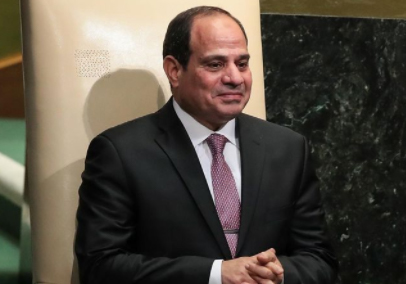
Feb 13, 2018 | News
The Egyptian government has trampled over even the minimum requirements for free and fair elections for the planned March 26-28, 2018 vote for president, the ICJ and thirteen international and regional rights organizations said today.
The government of President Abdel Fattah al-Sisi (photo) has relentlessly stifled basic freedoms and arrested potential candidates and rounded up their supporters.
“Egypt’s allies should speak out publicly now to denounce these farcical elections, rather than continue with largely unquestioning support for a government presiding over the country’s worst human rights crisis in decades,” the groups said.
The United States, European Union, and European states, which provide substantial financial assistance to the Egyptian government, should consistently integrate human rights into their relations with Egypt.
These countries should halt all security assistance that could be used in internal repression and focus aid on ensuring concrete improvements to protect basic rights.
The repression in advance of Egypt’s presidential election is a substantial escalation in a political environment that denies people’s rights to political participation and to freedom of expression, association, and peaceful assembly.
The Egyptian authorities should immediately release all those arrested for joining political campaigns or stating their intention to run as presidential candidates in the elections, the groups said.
The authorities have successively eliminated key challengers who announced their intention to run for president. They have arrested two potential candidates, retired Lt. Gen. Sami Anan and Col. Ahmed Konsowa.
A third potential candidate, Ahmed Shafik, a former prime minister and air force commander, apparently was placed under undeclared house arrest in a hotel until he withdrew from the race.
Two other key potential candidates, the human rights lawyer Khaled Ali and a former parliament member, Mohamed Anwar al-Sadat, backtracked on formally registering, citing the repressive environment, concerns over the safety of their supporters, and government manipulation.
The only current candidate running against al-Sisi is Mousa Mostafa Mousa, the leader of the Al-Ghad Party, which supports the government. He registered his candidacy on January 29, the last possible day, after efforts from pro-government parliament members to convince him to run.
Until the day before he registered his candidacy, he was a member of a campaign supporting al-Sisi for a second term. In this context, the right of every citizen to freely stand and vote in elections that reflect the free expression of the will of the electors appears meaningless.
These government actions are in contravention to Egypt’s Constitution and a clear violation of its international obligations and commitments, including the International Covenant on Civil and Political Rights (ICCPR), the African Charter on Human and Peoples’ Rights (ACHPR), and the 2002 African Union Declaration on the Principles Governing Democratic Elections in Africa. Article 25 of the ICCPR and Article III of the African Union declaration link political participation, as a voter and as a candidate, to the freedoms of assembly, expression, and association.
An EU handbook for elections observations, detailing standards of fair elections, says that these are rights “without which it [elections] cannot be meaningfully exercised.”
The current atmosphere of retaliation against dissenting voices and the increasing crackdown against human rights defenders and independent rights organizations have made effective monitoring of the elections extremely difficult for domestic and foreign organizations.
Media reports have said that the number of organizations that were granted permission to monitor the elections was 44 percent fewer than in the last presidential election in 2014 and that the number of requests, in general, has gone down.
Several opposition parties called for boycotting the elections. A day later al-Sisi threatened to use force, including the army, against those who undermine “Egypt’s stability and security.”
On February 6, the Prosecutor-General’s Office ordered an investigation against 13 of the leading opposition figures who called for a boycott, accusing them of calling for “overthrowing the ruling regime.”
“Seven years after Egypt’s 2011 uprising, the government has made a mockery of the basic rights for which protesters fought,” the groups said. “Egypt’s government claims to be in a ‘democratic transition’ but move further away with every election.”
Contact
Said Benarbia, Director of ICJ’s Middle East and North Africa Programme, t: +41-22-979-3817 ; e: said.benarbia(a)icj.org.
Signatories
Cairo Institute for Human Rights Studies
CIVICUS “World Alliance for Citizen Participation”
CNCD-11.11.11
EuroMed Rights “The Euro-Mediterranean Human Rights Network”
Human Rights First
Human Rights Watch
International Commission of Jurists
International Federation for Human Rights (FIDH)
International Service for Human Rights
Project on Middle East Democracy
Reporters Without Borders (RSF)
Robert F. Kennedy Human Rights
Solidar
World Organisation Against Torture (OMCT)
Egypt-Presidential vote neither free nor fair-Presse release-2018-ENG (Full Press release in English, PDF)
Egypte-Election présidentielle dans un contexte ni libre ni équitable-Communiqué de presse-2018-FRA (Full Press release in French, PDF)
Egypt-Presidential vote neither free nor fair-Presse release-2018-ARA (Full Press Release in Arabic, PDF)









